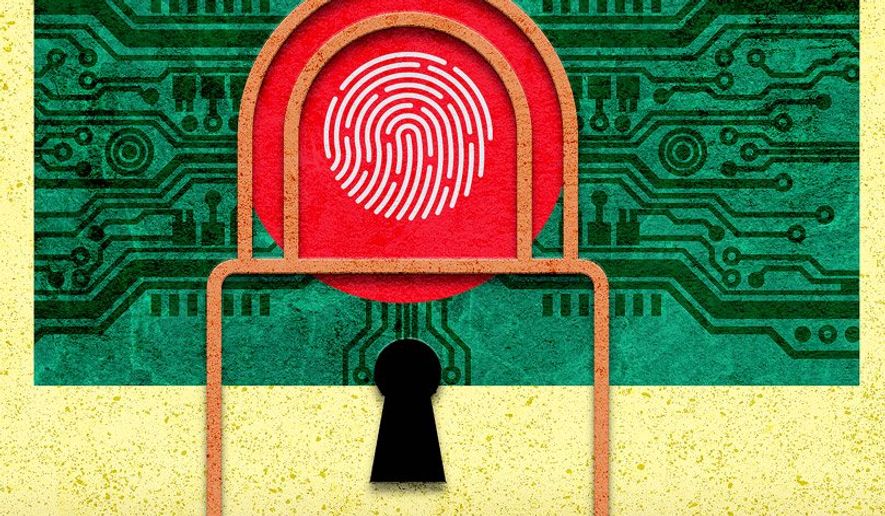OPINION:
Bangladesh has moved rapidly into the digital age. Last year, Parliament passed the Digital Security Act to protect citizen data and privacy and to safeguard against false digital publications that incite violence. Statutes like this have been enacted around the world.
Unfortunately, a few Western media outlets and non-governmental groups have mischaracterized this important law and accused the government of using it to suppress free speech and the rights of journalists.
This isn’t true. Bangladesh has a thriving, free press. Its nine national newspapers and its more than 300 local newspapers represent a wide range of viewpoints, including many that are critical of the government. Bangladesh’s sole state-owned network reports the government’s perspective, but the nearly 30 privately owned networks report the news as they see it, regularly criticizing the government, politicians and their policies. The same diversity of views can be found among the more than 220 independently run news sites online.
Rather than trying to oppress these outlets, the government has taken steps to ensure that minority voices are heard and that all Bangladeshis are protected from cyber criminals. But just as digital media and related technologies continue to evolve, so too will this regulatory framework. The Digital Security Act, like any new law, isn’t perfect.
Freedom has its challenges; democracy is messy. Bangladesh has embraced both freedom and democracy. The Digital Security Act aspires to protect the tenets of both while ensuring citizens’ safety. That combination isn’t simple or easy to balance.
Authorities are working diligently to develop best enforcement practices. But there have been some growing pains. As many news outlets have reported, several individuals have been arrested under the Act and protesters have made their dissatisfaction known. It is worth noting, however, that the courts have not convicted anyone under the Act.
Drafted by Bangladesh’s Information and Communication Technology Division, the Act was thoroughly debated in Parliament, in the media and in legal circles. Journalists, editors and even the editors’ guild provided valuable advice that helped shape the final product. The result was a compromise and an understanding that the law would have to change as new technologies emerge and as authorities learn from experience how to enforce it.
But our primary objective will not change. The government must protect citizens from digital extortion, blackmail and cyberbullying, while making sure minorities are heard. One part of the Act prohibits speech that “hurts religious feelings.” This was meant to protect the rights and safety of both the Muslim majority and Hindu minority. Other sections safeguard minorities by providing penalties for disseminating information intended to intimidate the powerless.
The Digital Security Act is also a landmark step to preserve the memory of the 3 million people who were killed during the genocide perpetrated during Bangladesh’s War of Liberation. Like Germany and 15 other European nations, the Act prohibits the deliberate dissemination of misinformation about those crimes against humanity.
Bangladesh’s history necessitates such precautions. More than 90 percent of the population is Muslim; the remainder is Hindu. Seemingly innocuous, fake news stories can have dramatic and tragic outcomes. For example, a recent Facebook post showed a phony image of a Hindu deity inside Islam’s holiest mosque in Mecca. In response, Islamist extremists vandalized 15 Hindu temples and 100 homes in Nasirnager, Bangladesh, northeast of Dhaka, the capital. It didn’t matter that the image had clearly been photo-shopped.
The Digital Security Act seeks to discourage such behavior. Critics argue that its language is too broad and has the potential to restrict press freedoms. Prime Minister Hasina has made clear that a free press is a cornerstone of democracy in Bangladesh. But the media must also act responsibly. It must seek facts, adhere to the truth and be cognizant of public safety.
When members of the press violate the law, they cannot expect to be immune from prosecution simply because of their profession. When the press knowingly disseminates false information that leads to injury, they must be held to account.
The Digital Security Act of 2018 represents a careful balance between freedom and security. Is it perfect? No. And it will evolve. In the meantime, Bangladesh is committed to improving both the Act and digital security.
• Sajeeb Wazed is the Information and Communications Technology Advisor of Bangladesh and the son of the prime minister.




Please read our comment policy before commenting.